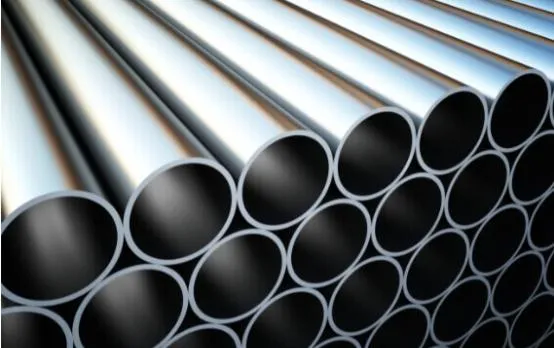-
Cangzhou Yulong Steel Co., Ltd.
-
Phone:
+86 13303177267 -
Email:
admin@ylsteelfittings.com
- English
- Arabic
- Italian
- Spanish
- Portuguese
- German
- kazakh
- Persian
- Greek
- French
- Russian
- Polish
- Thai
- Indonesian
- Vietnamese
- Zulu
- Korean
- Uzbek
- Hindi
- Serbian
- Malay
- Ukrainian
- Gujarati
- Haitian Creole
- hausa
- hawaiian
- Hebrew
- Miao
- Hungarian
- Icelandic
- igbo
- irish
- Japanese
- Javanese
- Kannada
- Khmer
- Rwandese
- Afrikaans
- Albanian
- Amharic
- Armenian
- Azerbaijani
- Basque
- Belarusian
- Bengali
- Bosnian
- Bulgarian
- Catalan
- Cebuano
- China
- China (Taiwan)
- Corsican
- Croatian
- Czech
- Danish
- Esperanto
- Estonian
- Finnish
- Frisian
- Galician
- Georgian
- Kurdish
- Kyrgyz
- Lao
- Latin
- Latvian
- Lithuanian
- Luxembourgish
- Macedonian
- Malgashi
- Malayalam
- Maltese
- Maori
- Marathi
- Mongolian
- Myanmar
- Nepali
- Norwegian
- Norwegian
- Occitan
- Pashto
- Dutch
- Punjabi
- Romanian
- Samoan
- Scottish Gaelic
- Sesotho
- Shona
- Sindhi
- Sinhala
- Slovak
- Slovenian
- Somali
- Sundanese
- Swahili
- Swedish
- Tagalog
- Tajik
- Tamil
- Tatar
- Telugu
- Turkish
- Turkmen
- Urdu
- Uighur
- Welsh
- Bantu
- Yiddish
- Yoruba

Nov . 27, 2024 17:45 Back to list
Understanding the Benefits of Using Pressed Flange in Construction Applications
Understanding Pressed Flange Applications and Advantages
The concept of a pressed flange is an integral part of modern engineering and manufacturing, acting as a crucial element in piping systems, structural applications, and machinery design. Pressed flanges, also known as stamped flanges, are created through a manufacturing process that involves pressing flat metal sheets into shape. This technique enables the production of flanges that are both strong and lightweight, making them ideal for various applications across different industries.
What is a Pressed Flange?
A pressed flange is a circular component designed to join two sections of pipe or tubing, ensuring a leak-proof seal that can withstand high pressure and temperature. These flanges are formed by applying significant pressure to metal sheets, causing them to take on the desired shape. The process typically involves several steps, including cutting, stamping, and sometimes welding, depending on the specific design and required specifications.
The most common materials used for pressed flanges include stainless steel, carbon steel, and aluminum, each chosen based on their corrosion resistance, strength, and weight characteristics. The choice of material also depends on the application's specific requirements, such as exposure to chemicals, heat levels, and mechanical stress.
Applications of Pressed Flanges
Pressed flanges are used in a wide array of industries, including
1. Piping Systems In the oil and gas industry, pressed flanges connect pipelines, securing them against leaks. They are vital in systems that transport liquids and gases under high pressure.
2. Construction In structural applications, pressed flanges are used to connect beams and other structural elements, providing the stability and support required in building frameworks.
4. HVAC Systems In heating, ventilation, and air conditioning systems, pressed flanges play an essential role in connecting ducts and ensuring efficient airflow.
pressed flange

5. Industrial Machinery Many machines utilize pressed flanges in their assembly, where they connect various parts and components, resulting in improved functionality and durability.
Advantages of Pressed Flanges
The use of pressed flanges offers several advantages over traditional flanges, making them a preferred choice in many applications
- Cost-Effectiveness The manufacturing process of pressed flanges typically allows for lower production costs compared to forged or cast flanges. This cost efficiency makes them an attractive option for large-scale projects.
- Lightweight The pressed design results in a lighter product, which can reduce transportation costs and make installation easier, especially in large assemblies.
- Customization Pressed flanges can be manufactured in various sizes and configurations, tailored to meet specific project requirements. This flexibility enables engineers to create bespoke solutions for unique challenges.
- Strength and Durability Despite their lightweight nature, pressed flanges exhibit excellent strength and can withstand substantial stress and pressure, making them suitable for rigorous applications.
Considerations in Using Pressed Flanges
While pressed flanges come with numerous advantages, certain considerations need to be taken into account. The design and engineering of a pressed flange should always consider factors such as pressure ratings, temperature limits, and the medium being transported. Additionally, proper installation and maintenance are essential to ensure the integrity and longevity of the flanges in service.
Conclusion
In conclusion, pressed flanges are vital components in numerous engineering and manufacturing applications. Their cost-effectiveness, lightweight design, and customization options make them a popular choice across various industries, from oil and gas to automotive engineering. As technology advances and the demand for efficient and reliable solutions continues to grow, pressed flanges will undoubtedly remain an important element within the field of engineering. Their ability to provide sturdy connections while minimizing weight and cost highlights their significance in modern manufacturing and construction practices.
Latest news
-
ANSI 150P SS304 SO FLANGE
NewsFeb.14,2025
-
ASTM A333GR6 STEEL PIPE
NewsJan.20,2025
-
ANSI B16.5 WELDING NECK FLANGE
NewsJan.15,2026
-
ANSI B16.5 SLIP-ON FLANGE
NewsApr.19,2024
-
SABS 1123 FLANGE
NewsJan.15,2025
-
DIN86044 PLATE FLANGE
NewsApr.19,2024
-
DIN2527 BLIND FLANGE
NewsApr.12,2024
-
JIS B2311 Butt-Welding Fittings LR/SR 45°/90° /180°Seamless/Weld
NewsApr.23,2024











